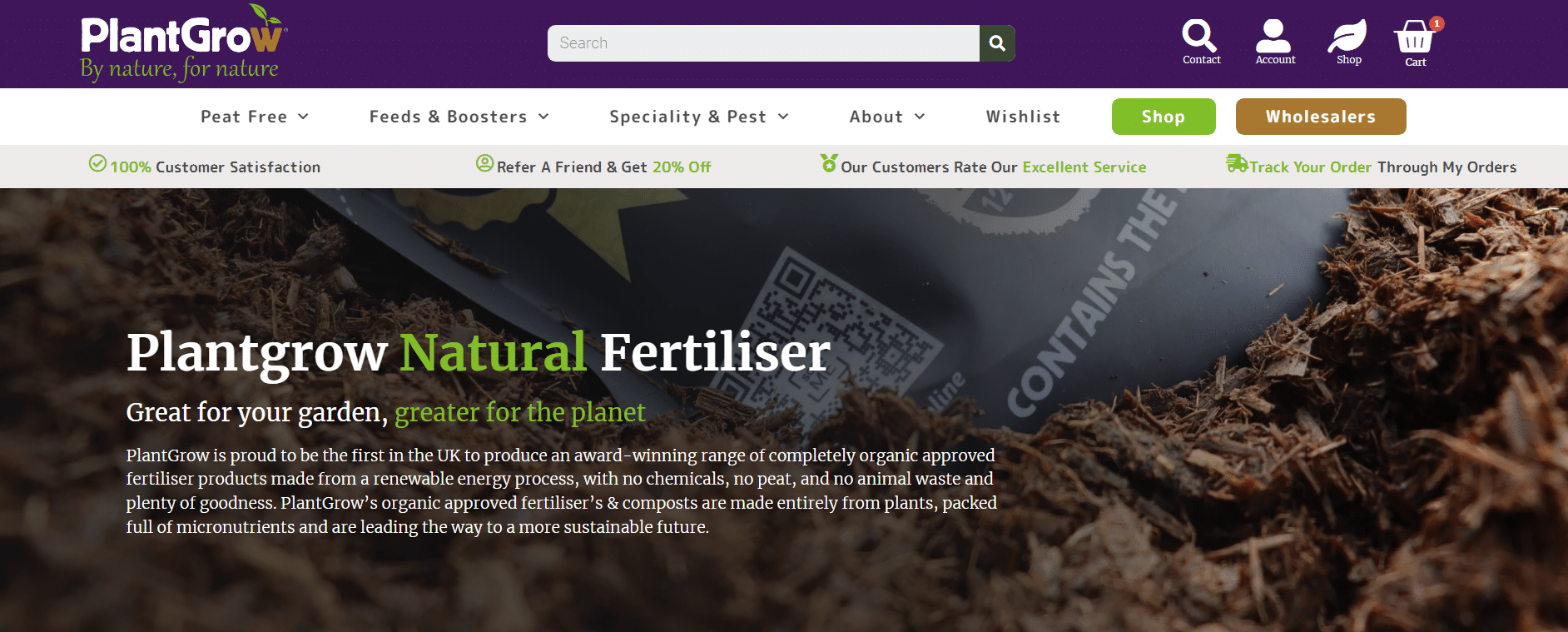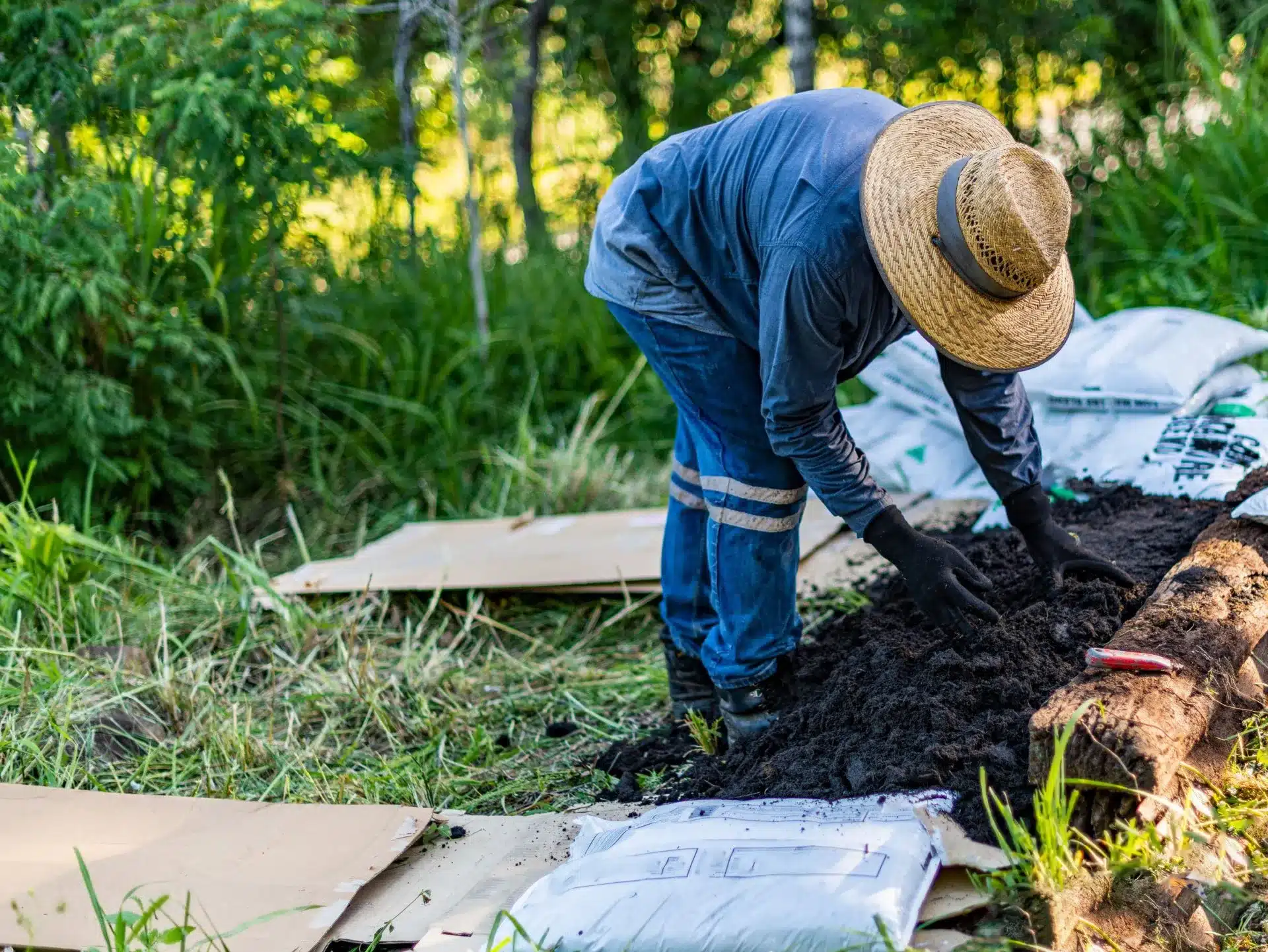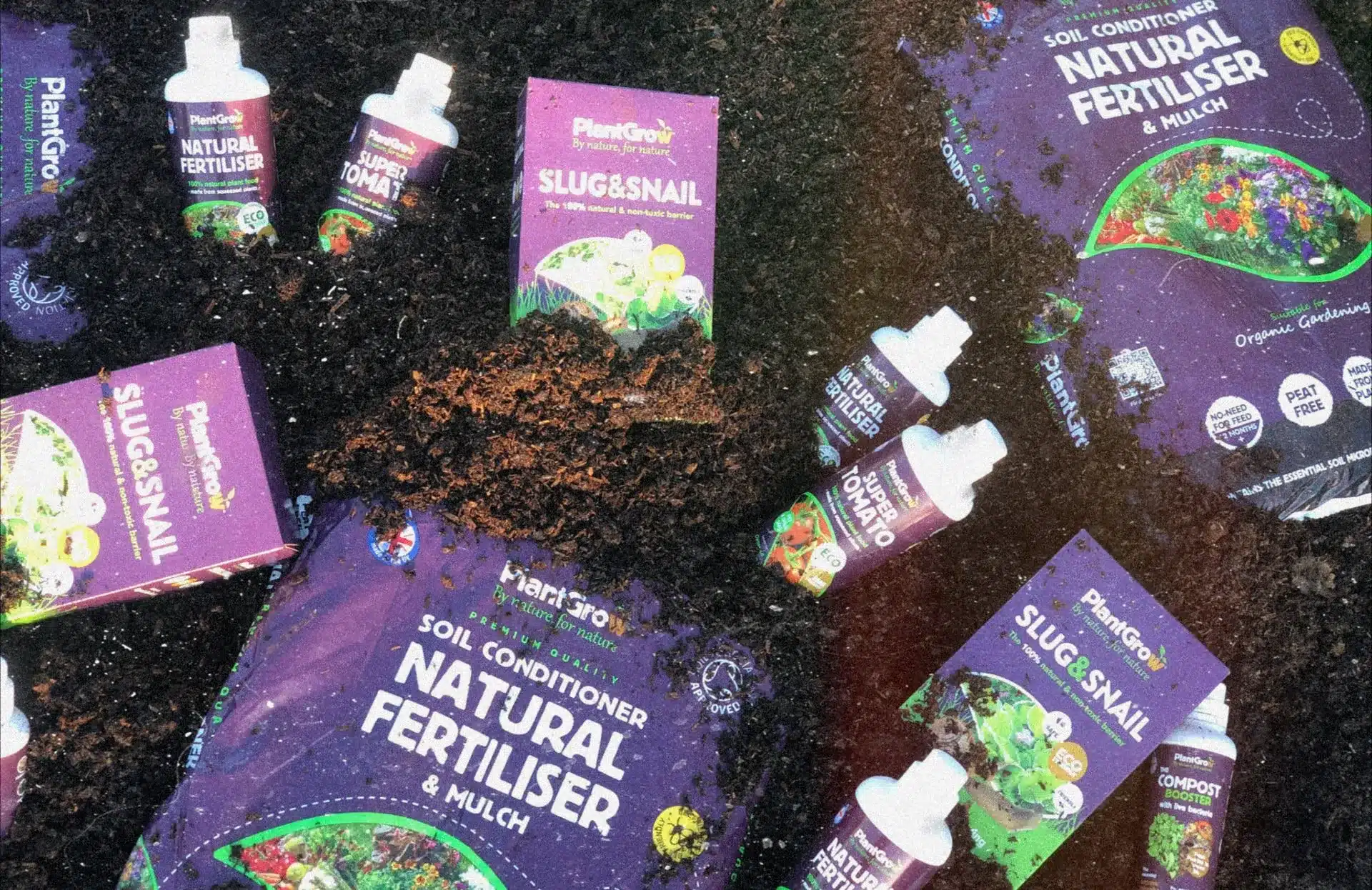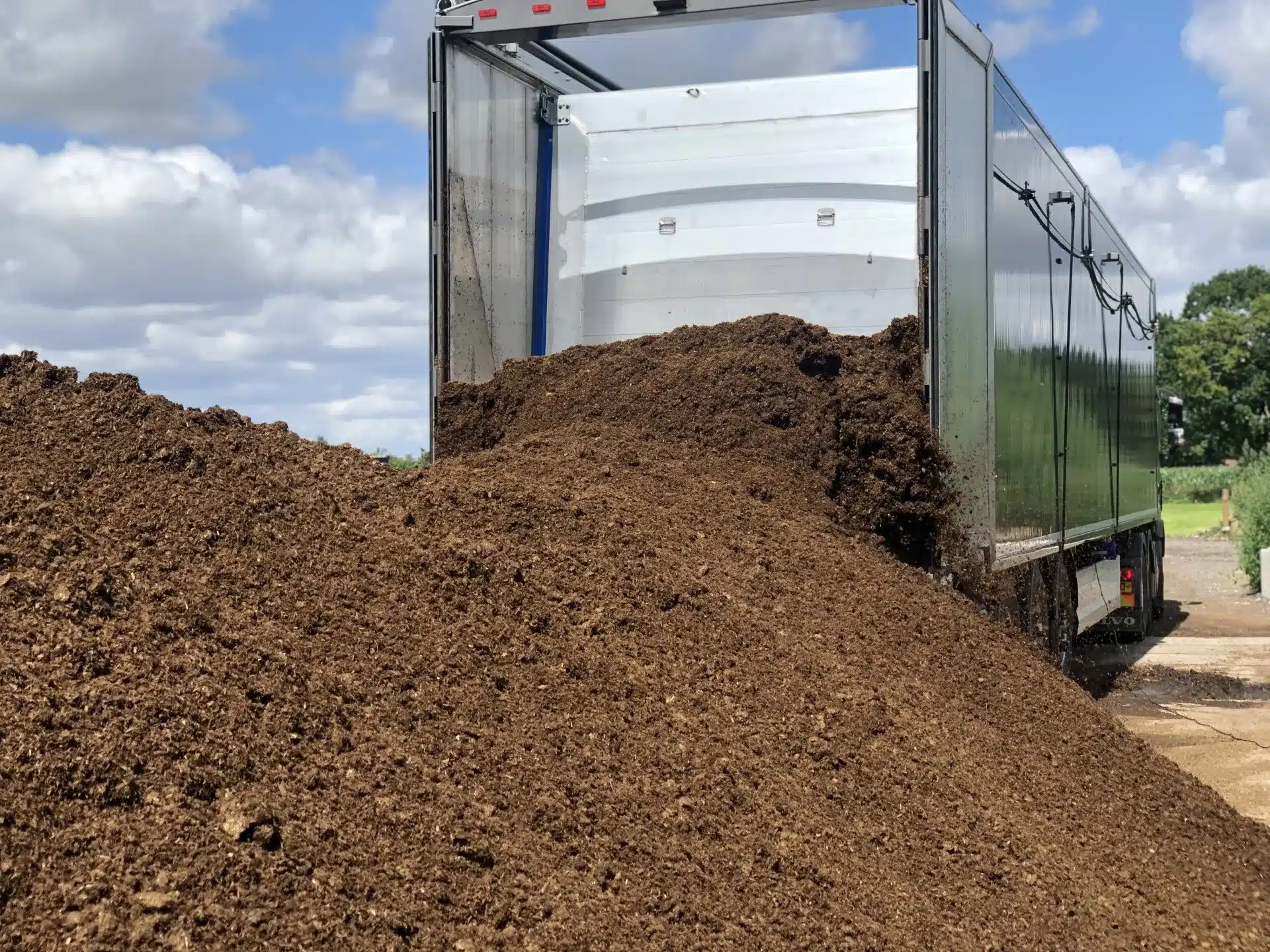Why organic fertiliser is better for your plants and vegetables
Q: Why should I use fertiliser on my fruits and vegetables? To help you get the most from your garden. Fertilisers supply your plants with

A couple of frequently asked questions are ‘How do I deal with slugs in my garden in an environmentally safe way?’ and ‘How can I naturally deter flies from my garden?’
To address the first question;
Slugs are a ubiquitous group of terrestrial molluscs of which there are over 40 different species in the British Isles.
it’s commonly assumed that all slugs are harmful plant pests, whereas the truth though is that only a small number of species feed on and damage plants.
However, it’s the damage caused by these plant eating slugs that often results in many other species of slugs being killed, either poisoned with non-selective toxic slug pellets, drowned in beer traps or squashed under a gardener’s boot.
And this indiscriminate targeting of all slugs will likely be detrimental to a healthy garden ecosystem for a number of reasons.
Primarily, eradicating slugs from a garden removes a vital food source for many beneficial creatures that exist further up a healthy garden’s food chain, creatures such as ground dwelling beetles, centipedes, small mammals, frogs, toads, blackbirds and hedgehogs.
It also means that slugs such as the Leopard slug, which is a natural predator of other slugs will die.
In addition, many other species of slugs that feed on dead organic matter, fungi and algae will suffer. These slugs are vital in the natural composting process that sustains a healthy garden ecosystem, since their feeding breaks down dead and decaying organic matter, recycling it back into the ground where soil micro-organisms will release the essential nutrients for root uptake and healthy new plant growth.
So, for environmental reasons and safeguarding a garden’s natural biodiversity, the best method for dealing with slugs where plants are being damaged, is not one that kills them, but one that effectively deters slugs from plants.
Besides many well-known home remedies that could be used as environmentally safe deterrents and barriers against slugs, such as crushed eggshells, coffee grinds and sharp grit, there’s also many non-toxic proprietary products that are now available.
And anyone wishing to check the effectiveness of their chosen barrier or deterrent product, simply encircle a slug or snail with a ring of it, then watch how they react.
The second question, ‘How can I naturally deter flies from my garden?’ is a bit trickier to answer, since there are many different types of flies that have many different roles to play within a healthy garden ecosystem.
Whilst some of the flies will be plant pests and others will be predators of other invertebrates, a significant number of flies will be important for the natural waste disposal and recycling processes that occur within a garden.
And it’s most likely that these waste-disposal fly species will be the ones that cause most nuisance to us within a home and garden as they land on our food to feed, or search for suitable areas to lay their eggs.
For the common Housefly, the attraction will primarily be decaying plant material, which will include leftover food from our meals, over-ripe or discarded fruit and vegetables, or their peelings from the kitchen.
For the Blowflies, it’ll be dead animal tissue that attracts them to lay their eggs on, which will include any remains of meat and fish dishes within our kitchen waste.
So, it’s inevitable that household waste bins, particularly the wheelie bins that are only emptied every fortnight, will emit the smells that attract flies into a garden and that they’ll be providing the perfect location for both Houseflies and Blowflies to lay their eggs in and for their maggots to feed and develop.
Naturally deterring these flies from coming into a garden to feed and lay their eggs, will ultimately depend on masking or eliminating the smells that attract the flies.
And to try and achieve this we’d need to ensure that all food waste is sealed within airtight bags before placing it in the waste bins. Also, spraying a fragrant natural plant oil within the bin each time a bag is added to mask any of the decay odours.
Washing the bin thoroughly after it’s been emptied will also help to reduce any residual smells that could attract the flies.
Q: Why should I use fertiliser on my fruits and vegetables? To help you get the most from your garden. Fertilisers supply your plants with

Meet our 2024 PlantGrow Champions PlantGrow Champions are a select group of Instagram growers who use PlantGrow in their gardens. Each one was individually chosen for

PlantGrow Launches All-New Website Back in 2016, nobody really knew about PlantGrow. Who’d have thought that in 2023 most gardeners in the UK would know

Our PlantGrow family is still growing! We’re pleased to reveal our latest PlantGrow champion: Chris Jesson from @groovygardeninguk. Chris set up his Instagram account in

Our aim is to encourage people to provide a better future for the environment while gardening! We make a range of environmentally friendly gardening products that

PlantGrow is proudly the first in the UK to produce a range of natural, Soil Association and Vegan Society-approved gardening products made through a sustainable

We paired up with one of our Champions, Richard Chuck to write this blog in order to guide and encourage people to mulch. We hope

We are so pleased to be announcing our newest Plant Grow Champion, Richard Chuck! Demonstrating his passion and dedication to gardening and sustainably, we could

We could not be more grateful and proud to have been one of the headline sponsors of the Sandringham Flower Show this year! We had
Find us: Cakes Hill Barn, Ellingham Road, Attleborough, Norfolk, NR17 1AE
| Cookie | Duration | Description |
|---|---|---|
| _savt | 3 years | This cookie is set by Square for payment processing. |
| cookielawinfo-checkbox-advertisement | 1 year | Set by the GDPR Cookie Consent plugin, this cookie is used to record the user consent for the cookies in the "Advertisement" category . |
| cookielawinfo-checkbox-analytics | 11 months | This cookie is set by GDPR Cookie Consent plugin. The cookie is used to store the user consent for the cookies in the category "Analytics". |
| cookielawinfo-checkbox-functional | 11 months | The cookie is set by GDPR cookie consent to record the user consent for the cookies in the category "Functional". |
| cookielawinfo-checkbox-necessary | 11 months | This cookie is set by GDPR Cookie Consent plugin. The cookies is used to store the user consent for the cookies in the category "Necessary". |
| cookielawinfo-checkbox-others | 11 months | This cookie is set by GDPR Cookie Consent plugin. The cookie is used to store the user consent for the cookies in the category "Other. |
| cookielawinfo-checkbox-performance | 11 months | This cookie is set by GDPR Cookie Consent plugin. The cookie is used to store the user consent for the cookies in the category "Performance". |
| CookieLawInfoConsent | 1 year | Records the default button state of the corresponding category & the status of CCPA. It works only in coordination with the primary cookie. |
| elementor | never | This cookie is used by the website's WordPress theme. It allows the website owner to implement or change the website's content in real-time. |
| viewed_cookie_policy | 11 months | The cookie is set by the GDPR Cookie Consent plugin and is used to store whether or not user has consented to the use of cookies. It does not store any personal data. |
| Cookie | Duration | Description |
|---|---|---|
| _GRECAPTCHA | Session | Spam prevention |
| _hjSession_* | 30 Minutes | A cookie that holds the current session data. This ensures that subsequent requests within the session window will be attributed to the same Hotjar session. |
| Woocommerce_cart_hash | 1 Day | To store items in cart |
| Woocommerce_items_in_cart | Session | Store items in cart. |
| Wordpress_logged_in_ | Session | WordPress |
| Wordpress_sec_* | 15 Days | To provide protection against hackers, store account details. |
| Wp_woocommerce_session_* | Session | Store performed actions. |
| Cookie | Duration | Description |
|---|---|---|
| _hjAbsoluteSessionInProgress | 30 Minutes | Hotjar sets this cookie to detect the first pageview session of a user. This is a True/False flag set by the cookie. |
| _hjAbsoluteSessionInProgress | 30 Minutes | Hotjar sets this cookie to detect the first pageview session of a user. This is a True/False flag set by the cookie. |
| _hjSessionUser_* | 1 Year | Hotjar cookie that is set when a user first lands on a page with the Hotjar script. It is used to persist the Hotjar User ID, unique to that site on the browser. This ensures that behavior in subsequent visits to the same site will be attributed to the same user ID |
| CONSENT | 2 years | YouTube sets this cookie via embedded youtube-videos and registers anonymous statistical data. |
| Cookie | Duration | Description |
|---|---|---|
| VISITOR_INFO1_LIVE | 5 months 27 days | A cookie set by YouTube to measure bandwidth that determines whether the user gets the new or old player interface. |
| YSC | session | YSC cookie is set by Youtube and is used to track the views of embedded videos on Youtube pages. |
| yt-remote-connected-devices | never | YouTube sets this cookie to store the video preferences of the user using embedded YouTube video. |
| yt-remote-device-id | never | YouTube sets this cookie to store the video preferences of the user using embedded YouTube video. |
| Cookie | Duration | Description |
|---|---|---|
| cookielawinfo-checkbox-tracking | 1 year | No description |
Parcel deliveries
We aim to deliver all parcels within 2-4 working days from dispatch, order before 12:00pm for same day dispatch.
Pallet deliveries
We aim to deliver all pallets within 2-5 working days from dispatch, order before 12:00pm for same day dispatch.
If you require further information regarding your delivery, please email daniel@plantgrow.co.uk
